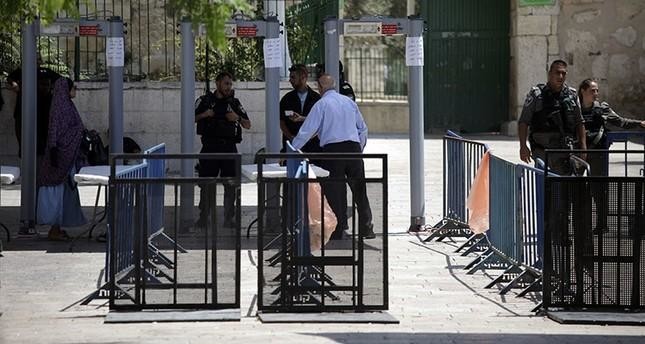Tensions in Jerusalem have reached a boiling point as the Israeli government refuses to back down from its decision to install controversial metal detectors at entrances to the Al-Aqsa Mosque compound, one of the holiest sites in Islam. The security measures, implemented after two Israeli police officers were killed in an attack there on July 14th, have sparked the bloodiest confrontations with Palestinians in years.
While some Israeli officials have floated potential alternatives like boosting police presence and utilizing advanced facial recognition cameras, Prime Minister Benjamin Netanyahu’s right-wing government remains resolute, unwilling to be perceived as capitulating to Palestinian demands. The Al-Aqsa compound’s location in East Jerusalem, captured by Israel in the 1967 war and later annexed in a move not recognized internationally, has inflamed the situation.
“The metal detectors will remain in place. The murderers will never dictate how we conduct security screenings,” declared Tzachi Hanegbi, a senior minister from Netanyahu’s Likud party, in a defiant statement on Army Radio. Palestinian religious leaders have rejected any new Israeli-imposed measures at the sacred site, calling on worshippers to boycott the metal detectors and fueling widespread protests that have turned deadly.
Israeli security forces shot and killed three Palestinian demonstrators on Friday, according to Palestinian medical officials, who said Israeli police were investigating the incidents. On Saturday, a Palestinian man was killed when an explosive device he was building detonated prematurely, the Israeli military said. Palestinian medics reported the man died from shrapnel wounds to his chest and abdomen.
The escalating unrest has begun spreading to the occupied West Bank, where on Friday a Palestinian stabbed three Jewish settlers after vowing on Facebook to take up his knife and heed “al-Aqsa’s call.” In Gaza, militants fired a rocket into Israel, though it struck an open area and caused no damage, Israel’s military said.
Top Israeli military and security officials have raised alarms about the explosive potential of the crisis. “The current period attests to the high combustibility,” warned army chief Lt. Gen. Gadi Eizenkot in a speech, while Public Security Minister Gilad Erdan cautioned of risks of “large-scale volatility” ahead.
Diplomatic efforts have so far failed to resolve the deadlock. Palestinian President Mahmoud Abbas ordered the suspension of all official contacts with Israel on Friday, though few substantive contacts beyond security cooperation in the West Bank remain active. The United Nations Security Council has scheduled an emergency session on the crisis for Monday, as regional powers Jordan and Turkey join Palestinian authorities in demanding Israel remove the metal detectors.
Amid the mounting pressure, Prime Minister Netanyahu insisted his government was managing the volatile situation “determinedly and responsibly,” weighing security decisions based on the escalating circumstances. But with Palestinian anger intensifying daily and the death toll mounting, the path to resolving the Al-Aqsa standoff appears increasingly elusive.

Leave a Reply
You must be logged in to post a comment.